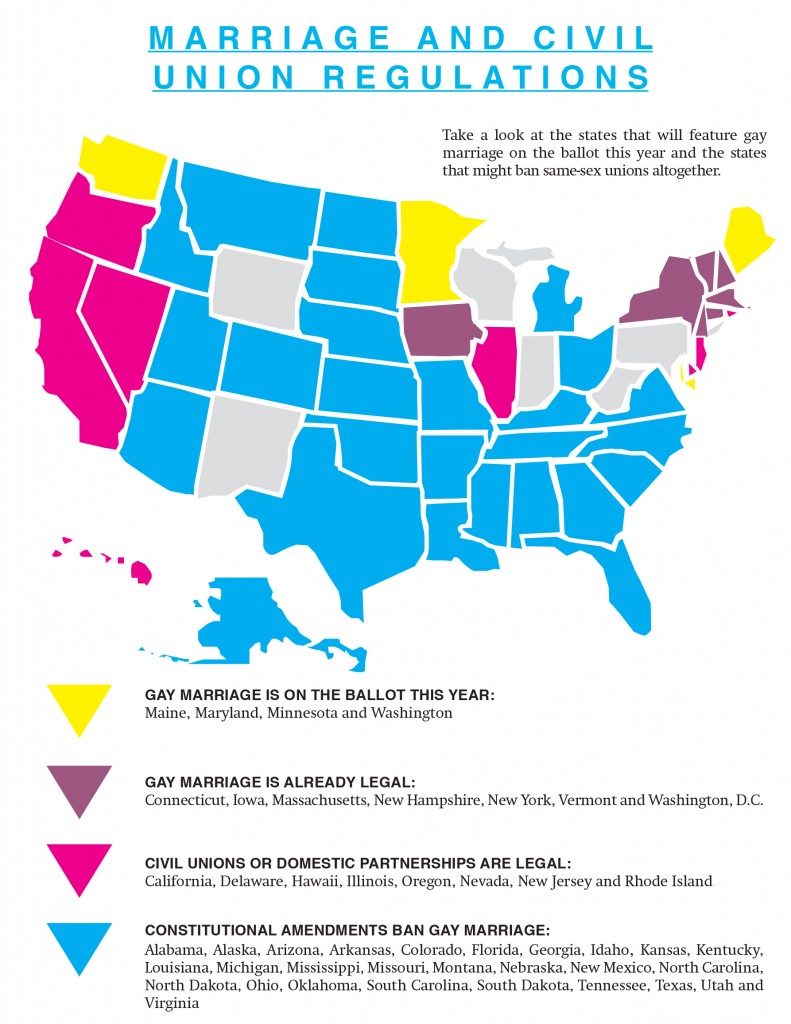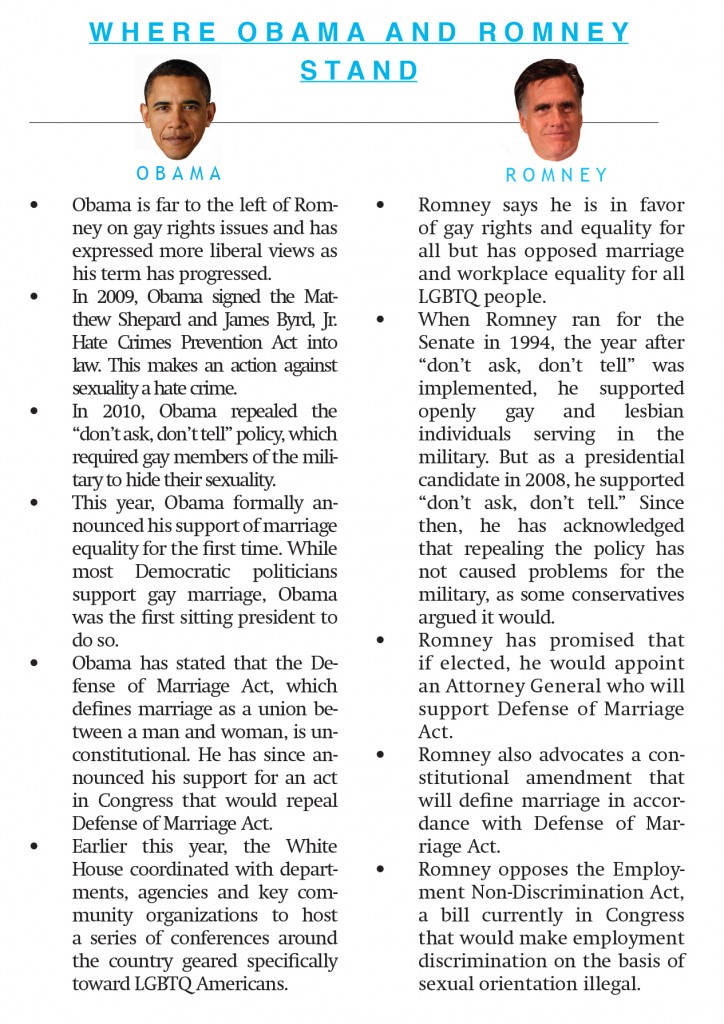The term gay rights extends far beyond marriage equality. In many states, same-sex couples are also restricted from adopting children. According to the Human Rights Campaign, it is legal to fire someone for being gay or bisexual in 29 states, and it is legal to fire someone for being transgender in 34 states. However, marriage equality is the most tackled issue by both presidential candidates. Although most students may not yet be concerned about marriage, NYU has a large and thriving LGBTQ population, and changes in same-sex marriage laws may pave the way for an expansion of gay rights in the future.
What NYU students say
Ethan Resnick, Gallatin sophomore, California
Question: Are you in favor of marriage equality?
Answer: Yes, absolutely. And there’s no reason not to be. The only inherent difference between gay and straight couples is that gay couples can’t have kids. But secularly or legally we haven’t defined marriage to require having kids: If that’s what it were about then a marriage would become official once the first kid was born.
Q: How do you feel about Proposition 8, the ballot initiative in your state that bans gay marriage? Would you vote to repeal it?
A: I remember pretty vividly when Prop 8 passed. That same day, three or four other gay rights measures about adoption and other legal rights were also on the ballot in other states, and all of them came up against equality. That felt like a stab, especially juxtaposed with a black president getting elected. With Prop 8 in particular, it hurt more to think about just how vehement the opposition was.
Hesham Noah, CAS junior, New York
Q: Do you believe gay marriage should become a right by law?
A: I think it is crucial to distinguish what constitutes marriage and gay marriage. Traditionally marriage has been between a man and a woman with, most often, an intended purpose to produce offspring. Gay marriage in its present form defeats years of tradition and flies against what is considered survival of the human race. However … it is necessary to accept and tolerate a diversity of different views without imposing specific mindsets on particular demographics.
This year, four states are battlegrounds for pro- and anti-gay marriage advocates, as citizens vote on ballot initiatives that could decide the fate of gay rights in the country. Currently, six states plus Washington, D.C. give same-sex couples the freedom to marry.
Maine’s Question 1:
In 2009, the Maine state legislature voted to legalize gay marriage. Shortly after, voters in the state approved a ballot measure that banned same-sex marriage. Question 1 would reverse that ban, making same-sex marriage legal again.
Maryland’s Question 6:
Question 6 asks whether voters wish to uphold the Civil Marriage Protection Act, which exempts clergy members from performing ceremonies that defy their religious beliefs.
Minnesota’s Amendment 1:
An amendment to Minnesota’s constitution would define marriage as a union between one man and one woman in the state. If this measure passes, it would still be possible to legalize same-sex civil unions but not marriages.
Washington’s Referendum 74:
Referendum 74, a bill passed in Washington earlier this year, would make same-sex marriage legal. It asks voters if same-sex marriage should be legalized. If the majority says no, the bill will be vetoed.
A version of this article appeared in the Friday, Oct. 26 print edition. Jessica Littman is deputy opinion editor. Email her at [email protected].
























































































































































